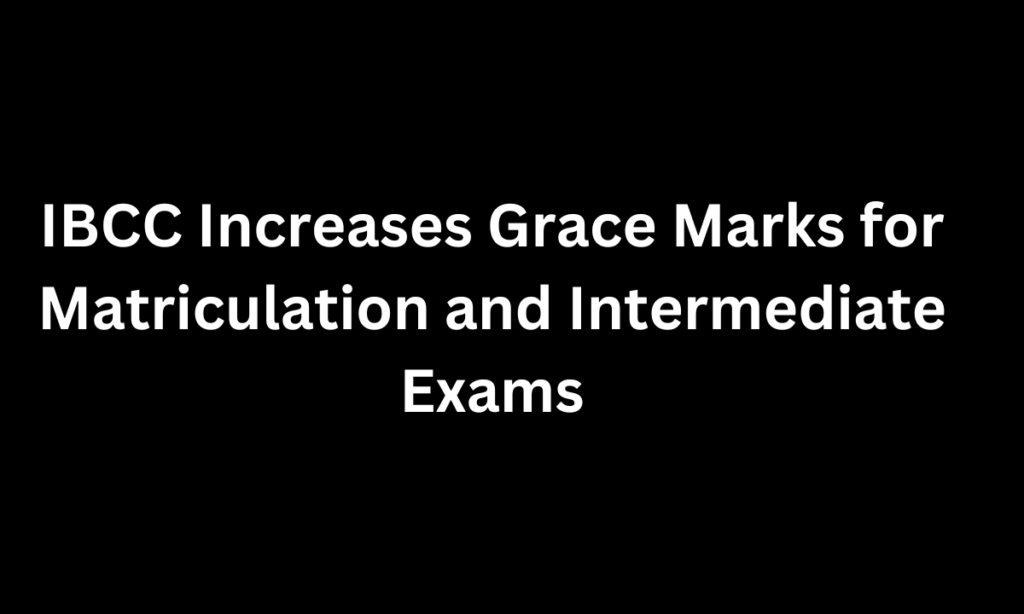IBCC Increases Grace Marks for Matriculation and Intermediate Exams

Introduction
The Inter-Boards Coordination Committee (IBCC) has made a significant decision to increase grace marks from three to five for matriculation and intermediate examinations across Pakistan. This change is in response to the new grading formula, which has raised the passing marks to 40% from the previous 33%. The increased grace marks aim to provide students with a better chance to pass their exams and move forward in their academic journey.
Key Points
- The IBCC has increased grace marks from three to five.
- The new grading formula requires a minimum of 40% marks to pass.
- The increased grace marks will be applicable from the 2025 examinations.
- The decision was made on Monday at a meeting of IBCC chairmen.
- The IBCC is responsible for coordinating and standardizing educational policies across Pakistan.
Impact of the Decision
The increase in grace marks is expected to have a positive impact on students’ performance in the upcoming examinations. It will provide them with additional leeway to pass subjects where they may have fallen short of the required marks. However, it is important to note that this change does not undermine the importance of hard work and dedication. Students are still encouraged to prepare thoroughly for their exams and aim for high marks.
FAQs
- What is the IBCC? The Inter-Boards Coordination Committee (IBCC) is a government body responsible for coordinating and standardizing educational policies across Pakistan.
- Why were grace marks increased? The increase in grace marks was made in response to the new grading formula, which has raised the passing marks to 40%.
- When will the new grace marks be implemented? The increased grace marks will be applicable from the 2025 examinations.
- How will this affect students’ performance? The increased grace marks are expected to provide students with a better chance to pass their exams and move forward in their academic journey.
Table: Comparison of Old and New Grace Marks
| Old Grace Marks | New Grace Marks | |
|---|---|---|
| Passing Marks | 33% | 40% |
| Maximum Grace Marks | 3 | 5 |
Conclusion
The IBCC’s decision to increase grace marks is a welcome move that will benefit students across Pakistan. It recognizes the challenges that students may face in achieving the new passing marks and provides them with a fair chance to succeed. However, it is crucial to remember that grace marks should be used judiciously and not as a substitute for hard work and dedication. Students should continue to focus on their studies and strive for excellence in their academic endeavors.
Additional Points
- The IBCC has also made other changes to the grading system, including the introduction of grade point averages (GPAs) and the use of a 10-point grading scale.
- These changes are aimed at improving the quality of education in Pakistan and making it more comparable to international standards.
- The IBCC will continue to monitor the impact of these changes and make further adjustments as needed.